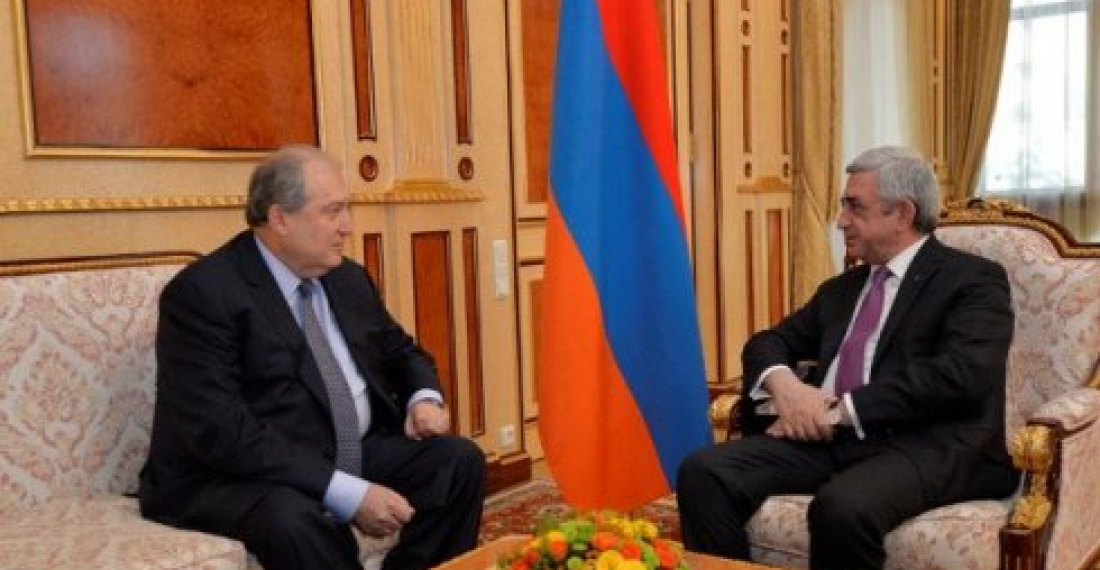Армен Саркисян выдвинут в качестве кандидата на пост президента от правящей Республиканской партии. Предполагается, что Армен Саркисян займет пост президента в апреле этого года по истечению срока полномочий нынешнего президента Сержа Саргсяна. Это будет сопровождаться вступлением в силу конституционных изменений, которые передадут большинство исполнительных полномочий от президента парламенту и премьер-министру.
В настоящее время Армен Саркисян является послом Армении в Лондоне, до этого недолго занимал пост премьер-министра Армении в 1990-х годах.
В пятницу утром (19 января), армянские СМИ сообщили, что президент Серж Саргсян провел встречу в Ереване с Арменом Саркисяном и предложил его на эту должность от имени правящей Республиканской партии Армении. Президент Серж Саргсян также является лидером РПА, и, как ожидается, он сохранит за собой это место после ухода. Пока неясно, планирует ли Серж Саргсян занят какую-либо другую государственную должность, такую как премьер-министра или председателя парламента. Но независимо от того, займет он пост или нет, как ожидается, он продолжит оказывать влияние на политическую арену Армении, по крайней мере, еще некоторое время.
источник: commonspace.eu
фото: Президент Армении Серж Саргсян с Арменом Саркисяном 19 января 2018 года (фото предоставлено пресс-службой президента Армении)






